R. Michael Young
Intelligent Systems Program, University of Pittsburgh
DPOCL: A Principled Approach to Discourse Planning
Jun 10, 1994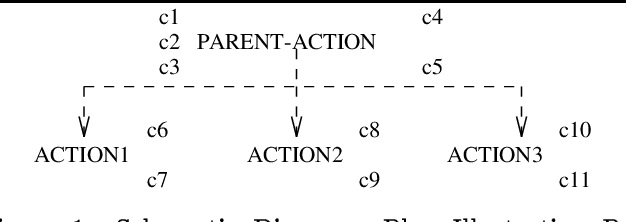
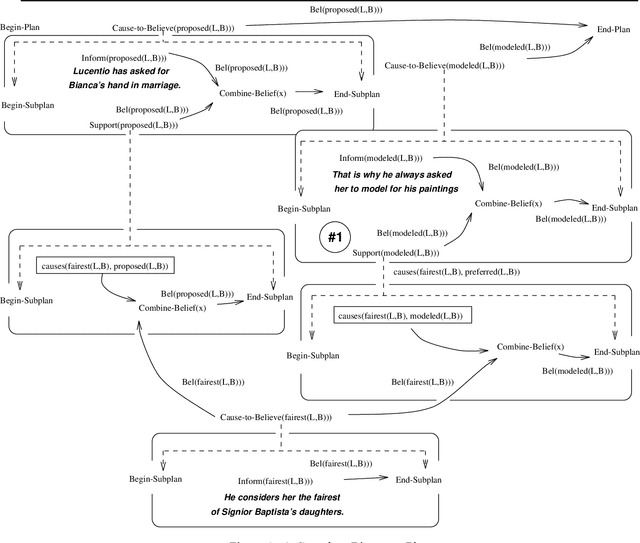
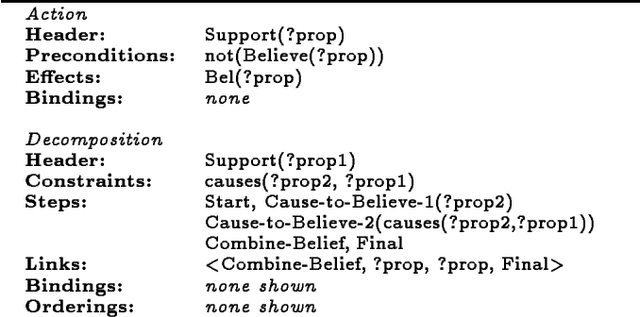
Abstract:Research in discourse processing has identified two representational requirements for discourse planning systems. First, discourse plans must adequately represent the intentional structure of the utterances they produce in order to enable a computational discourse agent to respond effectively to communicative failures \cite{MooreParisCL}. Second, discourse plans must represent the informational structure of utterances. In addition to these representational requirements, we argue that discourse planners should be formally characterizable in terms of soundness and completeness.
Towards a Principled Representation of Discourse Plans
Jun 01, 1994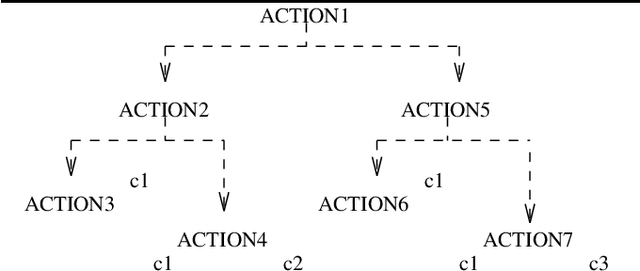
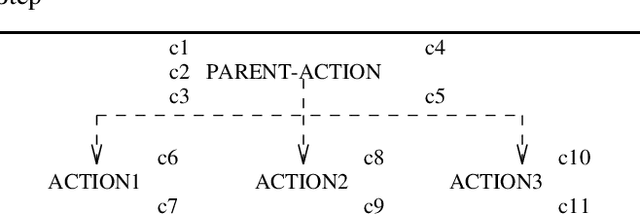
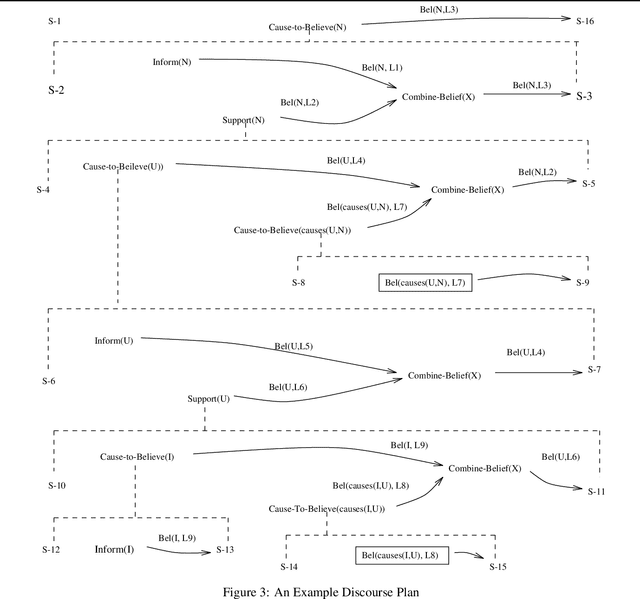
Abstract:We argue that discourse plans must capture the intended causal and decompositional relations between communicative actions. We present a planning algorithm, DPOCL, that builds plan structures that properly capture these relations, and show how these structures are used to solve the problems that plagued previous discourse planners, and allow a system to participate effectively and flexibly in an ongoing dialogue.
* requires cogsci94.sty, psfig.sty
 Add to Chrome
Add to Chrome Add to Firefox
Add to Firefox Add to Edge
Add to Edge